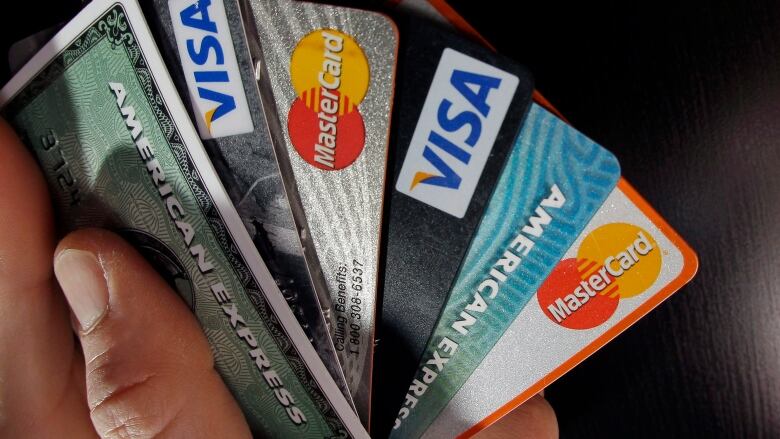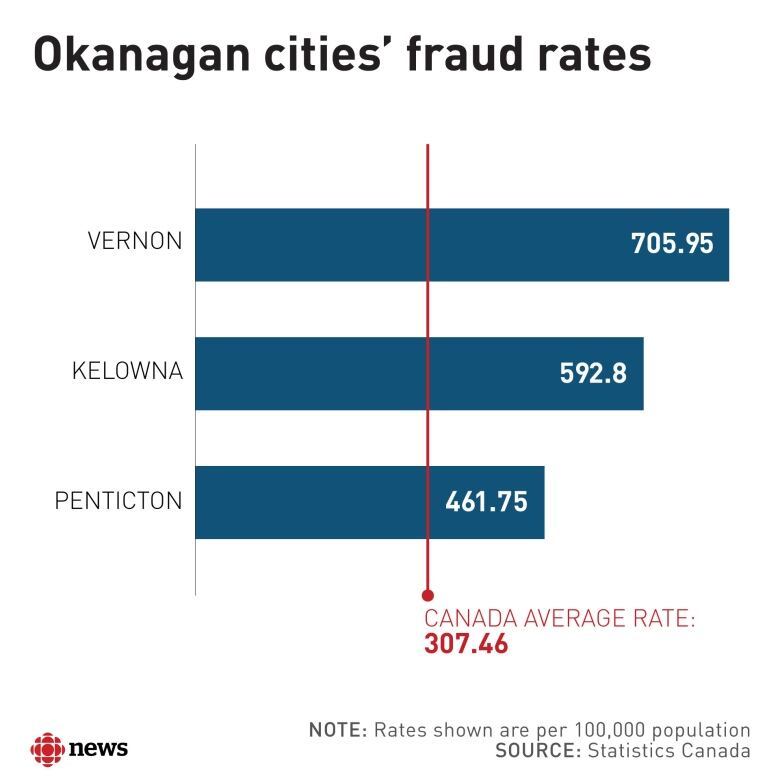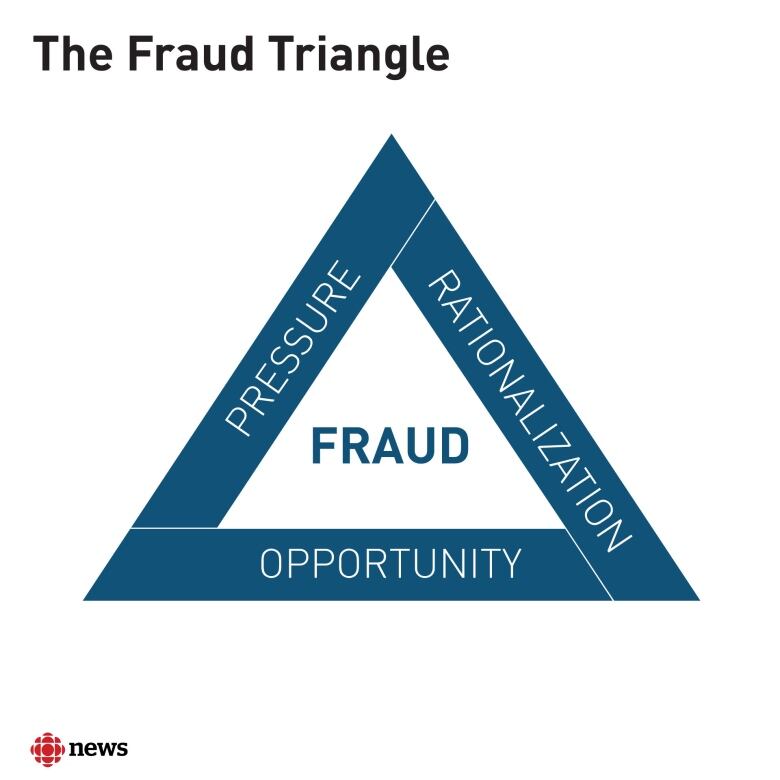White collar criminals try to justify their actions to themselves, experts say
In 2017, there were more than 1,200 incidents of fraud in the Okanagan

A hospice society dedicated to dying patientsand a hockey club trying to send teenage players on a Europeantour are just two of a number of Okanagan organizations hit by fraud in the past couple of years.
Fraud experts say there are usually three elements in play when white collar criminals deceive the innocent: financial pressure, rationalization and opportunity.
Those factors may be behindmore than 1,200 incidents of fraud in Okanagan cities in 2017. The rate of fraud in some of the region's cities isnearly double the national average,according to Statistics Canada.
The "fraud triangle"described by American criminologist Donald Cresseyis a starting point to explain these crimes, said forensic accountant Glen Jackson.

Someone ismotivated to get more money by pressure to attain a certain lifestyle orfeed anaddiction and theyconvince themselvestheir actionis justified. Then, they need the chance to act.
Forensic accountant Marilyn Mellis gives the example of finding a $20 bill on a restaurant table.
"I'm looking at that and I didn't come into the restaurant to steal $20. It just happens to be there. I'm there. The opportunity's been made available to me," she said.

Pressure
Financial pressures can take manyforms, but it's oftenrelated to thedesiretolive a lifestyle beyond one'smeans.
In a case currently in civil court, a Kelowna community support agency, Access Human Resources,alleges former bookkeeperCarey Earldefraudedthe company of nearly$1.8 million between 2005 and 2018.
In court documents, the company allegesEarl transferredmoney toher bank account and also those of her family members. Access Human Resources also alleges she usedstolen money for a number of personal expenses, including buying properties,vehicles for her familyand even chipping in for her child'swedding.
Addiction whether todrugs orgambling is another factor.
The former executive director of the Central Okanagan Hospice Association,Susan Steen,has been charged with fraud and theft for allegedly stealing more than $100,000 using the association's credit card.Steen reportedly has a gambling addiction and is expected to appear in court on this charge later this month.
Steenwassentenced to jail in January after pleading guilty to stealing almost$6,000 from another hospice society, this time in Nanaimo, in a job she took after leaving the Okanagan.Shewas caught using the company credit card at a casino.
Earlier this year, the Central Okanagan Hospice Association's office administrator Melanie Gray was sentenced to five months in jail for stealing nearly $70,000 from the organization.
Rationalization
Those who perpetrate fraud often rationalize their actions by creating elaborate excuses to justify their deeds. In some cases, they convince themselvesthey will eventually pay it back, saidMellis.
"Day after day you're saying 'Okay,I am changing the name on a cheque that belongs to my not-for-profit and I just did it the first time because I was short of rent', so [you]rationalizedit," she said.
"Each time they do it, it's a small rationalization. It's not a great big one. And it just adds upand adds upand adds up."
Opportunity
Forensic accountant Glen Jackson said eliminating the opportunity for fraud is the one aspect of the triangle that businesses can control.
"No opportunity, no fraud," said Jackson.
Company credit cards, for instance, should be aprivilege with strict oversight.
"I refer to it as bookkeeping fraud, because really they're bookkeepers who understand the basic system and they use it to their advantage."
Sticky Fingers: Fraud in the Okanagan is a series that looks at white-collar crime in B.C.'s Southern Interior. It's produced by Chris Walker and Christine Coulter and airs on CBC Radio One's Daybreak South from May 6-10.
with files from Chris Walker, Christine Coulter and Daybreak South












_(720p).jpg)


 OFFICIAL HD MUSIC VIDEO.jpg)
.jpg)



























































































